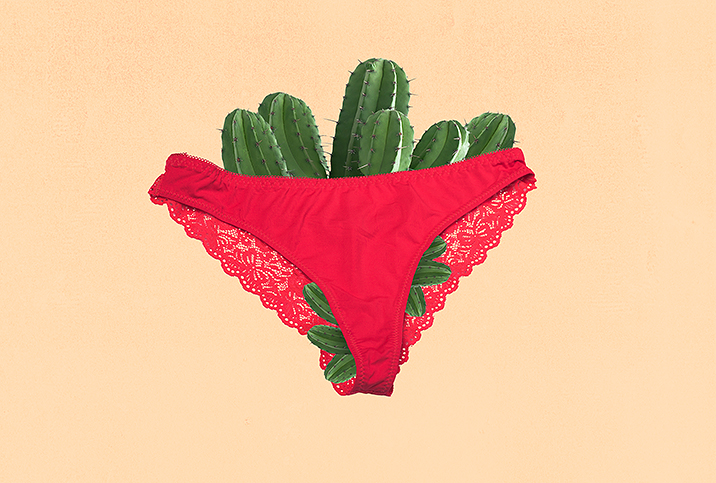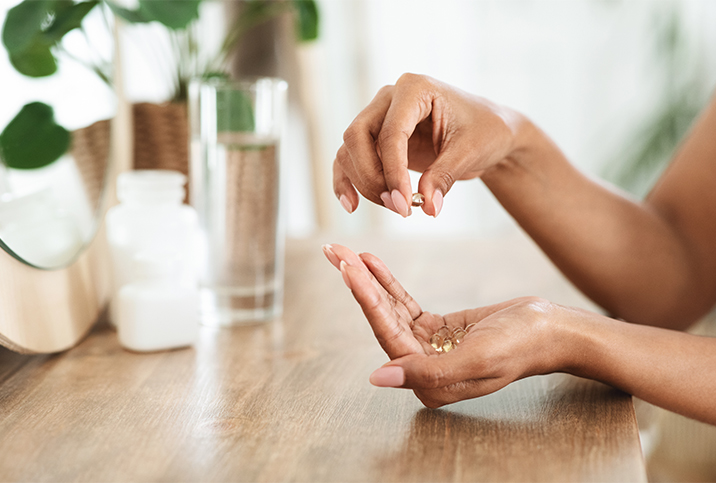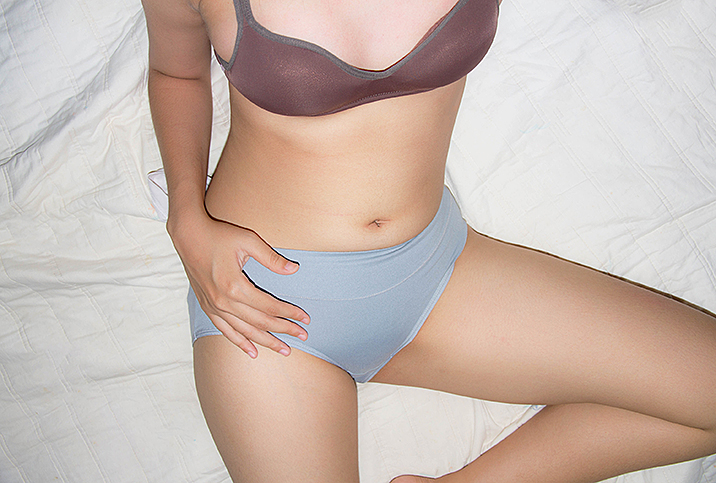Debunking Myths About Vaginal Dryness

Vaginal dryness impacts women's lives sexually, physically and emotionally. However, many women still shy away from openly talking about their struggles with healthcare professionals because they lack information.
If you're experiencing inadequate vaginal lubrication, it's essential to sort fact from fiction so you can be better informed about this common condition.
Myth 1: You're the only one who has it
Perhaps the first vaginal dryness myth to debunk is that you are the only one who's experiencing it. Vaginal dryness, defined as decreased physiological lubrication on the vaginal surface, is a reality for more than 17 percent of sexually active women ages 18 to 50. The statistic goes up as women age due to dipping estrogen levels.
Women usually notice vaginal dryness during sex, particularly symptoms such as stinging, burning and itching within the vaginal opening. As a result, they can experience pain or discomfort during sexual intercourse or masturbation. They may also feel the frequent need to urinate.
Myth 2: It only happens to postmenopausal women, right?
Not quite.
While as many as 65 to 84 percent of postmenopausal women experience vaginal dryness, the condition also affects women before and during menopause. Vaginal dryness can occur in women of any age, but rates are higher among postmenopausal women.
As women age, their vaginas age as well. The closer women get to menopause, the less estrogen they produce. A drop in estrogen levels causes the vaginal tissue to thin out, becoming dry and less elastic. As such, estrogen decline is the primary culprit in vaginal dryness.
Women routinely experience reduced estrogen levels during menopause, as well as after childbirth and during breastfeeding.
Myth 3: Something must be wrong with you medically
Some medical conditions cause lower estrogen levels in women and lead to vaginal dryness. For example, certain autoimmune diseases—such as Sjögren's syndrome, a condition characterized by a lack of moisture in the eyes and mouth—can cause vaginal dryness.
Moreover, women with breast cancer or those undergoing hormone therapy, chemotherapy or pelvic radiation, and women who have had their ovaries surgically removed will also experience insufficient vaginal lubrication.
Still, while vaginal dryness is generally attributed to hormonal changes in women, psychological and emotional factors, medications and hygiene habits can lead to reduced vaginal lubrication as well.
Lack of sexual arousal or of foreplay can leave your vagina dry during sex. Moreover, stress and anxiety in women can cause insufficient blood flow and impede natural vaginal lubrication.
Unwise hygiene behaviors can also be responsible for vaginal dryness. For example, using harsh soaps, feminine products and douching can cause dryness. Likewise, treatments such as antidepressants and allergy and cold medications reduce vaginal secretion.
Myth 4: Nothing can be done about it
Vaginal dryness is a treatable condition, and there are options to alleviate the discomfort and pain associated with it.
Stay hydrated. By drinking enough water and hydrating, you can help your body produce lubricating secretions, such as sweat, tears, saliva and vaginal fluid.
Use lubrication. Using over-the-counter lubricants can help alleviate dryness symptoms and heighten sexual arousal. In a 2011 study, women reported fewer genital symptoms and higher sexual satisfaction while using water-based lubricants compared to no-lubricant sex.
Achieving vaginal wetness through heightened sexual arousal can help manage pain and discomfort during sex. In a 2013 study published in the Journal of Sex Medicine of 2,451 women, the use of lubricants was significantly associated with sexual satisfaction.
Boost your estrogen. Using a low-dose vaginal estrogen cream, rings or suppositories can be effective in treating acute vaginal dryness. They help thicken and lubricate the vaginal walls.
Talk to your doctor
Vaginal dryness may not be a debilitating condition, but it deserves your attention because you deserve to have a properly lubricated vagina. Having adequate information and support can help you talk more openly with your OB-GYN and be proactive about finding a solution.
You can reach out to a support group for women with menopause to have a shame-free conversation about vaginal dryness and other related conditions.
So talk to your doctor to find out the most appropriate treatment for you.


















